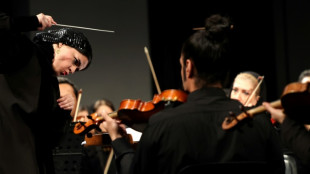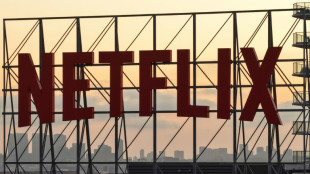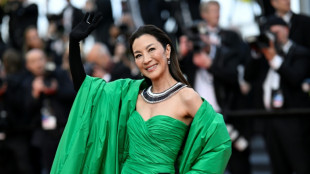Nepal ends social media ban after deadly protests
Nepal rolled back its social media ban on Tuesday, a day after at least 19 people were killed in youth protests demanding that the government lift its restrictions and tackle corruption.
All major social media apps were working, an AFP reporter in Kathmandu said, as the government ordered a probe into the violence that saw police launch one of the deadliest crackdowns on protesters for years.
"The social media platforms have been opened, which was among the Gen Z's demands," Minister for Communication Prithvi Subba Gurung told AFP, referring to young people aged largely in their 20s.
"We are open to talk with the protesters."
A curfew was imposed in several cities on Tuesday morning, but groups angry over the violence and deaths defied it.
Some targeted the properties of politicians and government buildings, according to an AFP photographer and local media reports.
Others burnt tyres, shouting slogans demanding accountability from the authorities.
"Nearly 20 people were murdered by the state -- that shows the scale of police brutality," 23-year-old student Yujan Rajbhandari said Tuesday, who took in the protests a day earlier.
"The government ... have to take responsibility for the lives that were lost."
Several social media sites -- including Facebook, YouTube and X -- were blocked on Friday in the Himalayan nation of 30 million people, after the government cut access to 26 unregistered platforms.
The ban sparked widespread fury, especially among the younger generation who rely heavily on the apps for communication.
Amnesty International said live ammunition had been used against protesters on Monday, and the United Nations demanded a swift and transparent probe.
One eyewitness said she had "never seen such a disturbing situation" at the hospital where dozens of the 400 injured were treated.
"Tear gas entered the hospital area as well, making it difficult for doctors to work," said Ranjana Nepal, information officer at the Civil Hospital, speaking during the protests.
- 'Silencing an entire generation' -
Prime Minister KP Sharma Oli, 73, in a letter issued overnight, after an emergency cabinet meeting where the interior minister resigned, said he was "deeply saddened" by the deaths.
"The government was not in favour of stopping the use of social media and will ensure an environment for its use", Oli wrote in a letter, ordering an investigation committee probe the violence.
The ban fed into anger at the government in a country where unemployment hovers around 10 percent and GDP per capita at just $1,447, according to the World Bank.
Police in Kathmandu on Monday clashed with the crowds when protesters pushed through barbed wire and tried to storm into a restricted area near parliament.
Seventeen people were killed in Kathmandu, police said, and two more in the eastern district of Sunsari, according to local media.
Kathmandu police spokesman Shekhar Khanal said about 400 people were injured, including more than 100 police.
Since Friday, videos contrasting the struggles of ordinary Nepalis with the children of politicians flaunting luxury goods and expensive vacations have gone viral on TikTok, which was not blocked.
Popular platforms such as Instagram have millions of users in Nepal who rely on them for entertainment, news and business.
"This isn't just about social media -- it's about trust, corruption, and a generation that refuses to stay silent," the Kathmandu Post newspaper wrote.
"Gen Z grew up with smartphones, global trends, and promises of a federal, prosperous Nepal," it added.
Nepal has restricted access to popular online platforms in the past, including to Telegram in July, citing a rise in online fraud.
It lifted a nine-month ban on TikTok last year after the platform agreed to comply with Nepali regulations.
G.Vogl--MP




